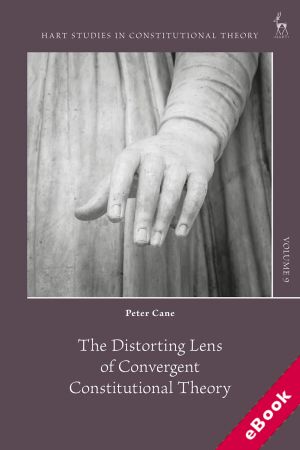
The device(s) you use to access the eBook content must be authorized with an Adobe ID before you download the product otherwise it will fail to register correctly.
For further information see https://www.wildy.com/ebook-formats
Once the order is confirmed an automated e-mail will be sent to you to allow you to download the eBook.
All eBooks are supplied firm sale and cannot be returned. If you believe there is a fault with your eBook then contact us on ebooks@wildy.com and we will help in resolving the issue. This does not affect your statutory rights.
This book challenges the near-universal acceptance of a US-style, Western constitutional paradigm as the best basis for comparative constitutional studies. It does so on three main grounds: anachronism, 'othering' and cultural specificity.
Main pillars of 'convergent constitutional theory' are rooted in the revolutionary, late-eighteenth century – a lost world; constitutional arrangements that deviate from the paradigm are often branded as 'outliers' or even as not constitutional at all; and the foundations of the paradigm in liberal democracy give no space for other forms of constitutionalism. Whatever the attractions of convergent theory as a normative ideal of good government, for the purposes of understanding, analysing and explaining constitutional systems it is far from ideal.
This book discusses and questions: convergent theory's weddedness to writing as the technology of constitution-making; its image of a constitution as fundamental law; its idea that a constitution expresses the 'sovereignty of the people'; its use of tripartite separation of powers as the basic principle of institutional design; its relative neglect of administrative law; its association of 'rights' with judicially enforceable bills of rights; and its obsession with a vaguely specified concept of 'democracy'.
It makes suggestions for alternative, preferable methods of understanding, analysing and explaining constitutions, and governmental and constitutional systems.